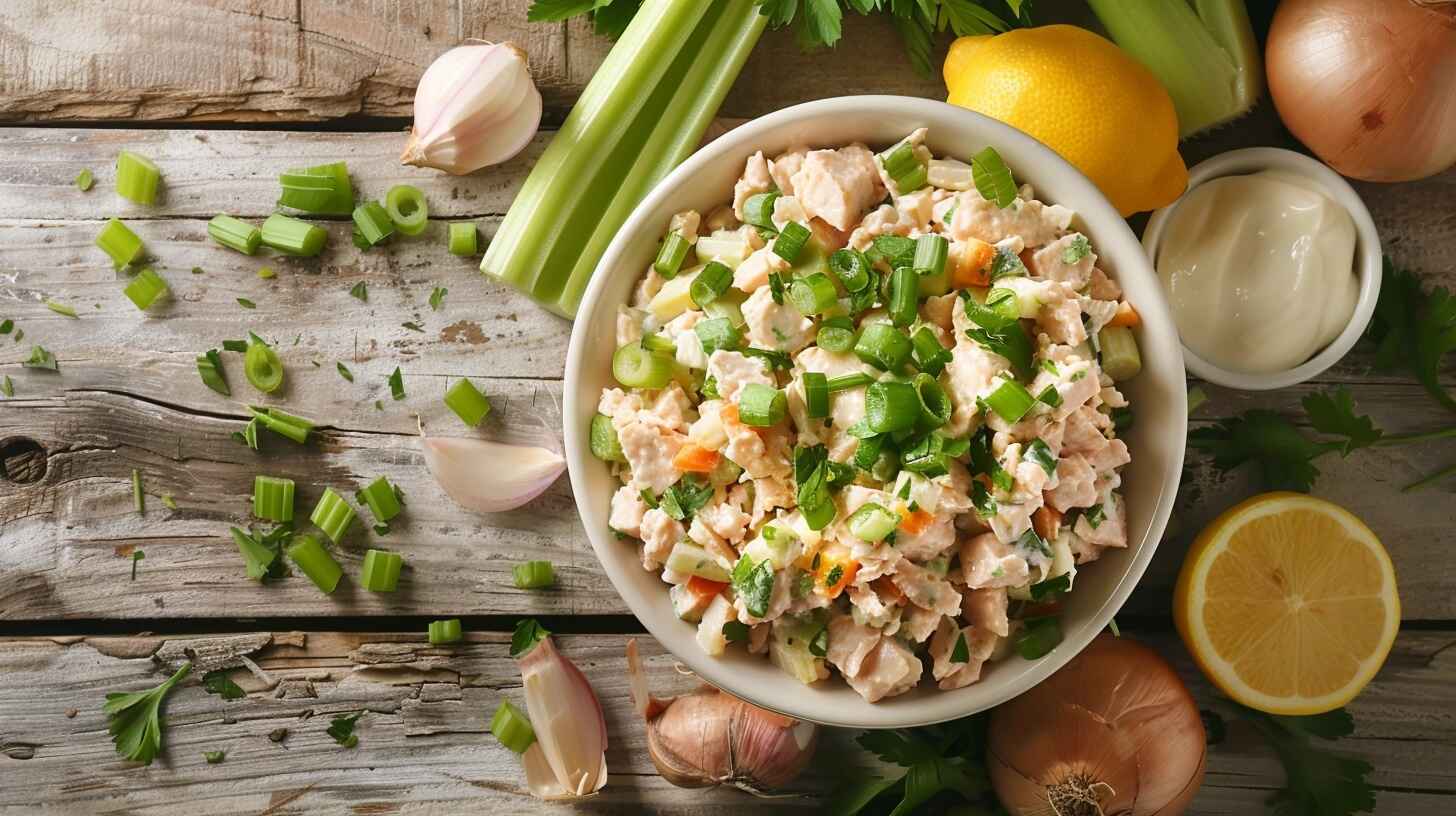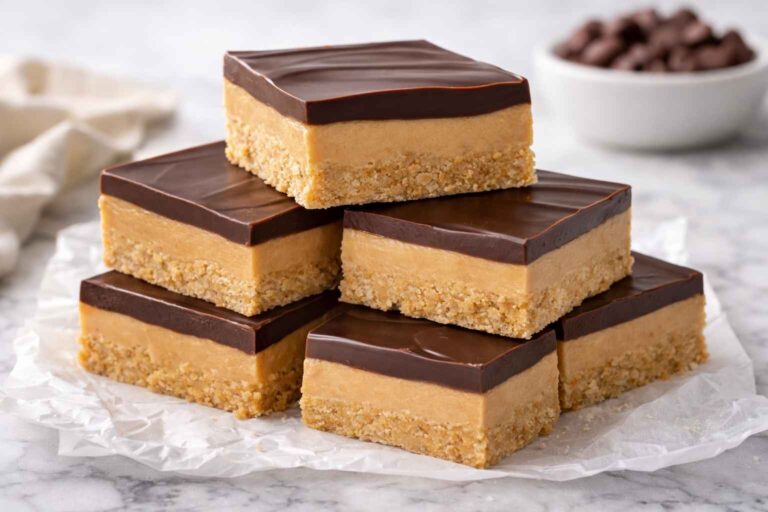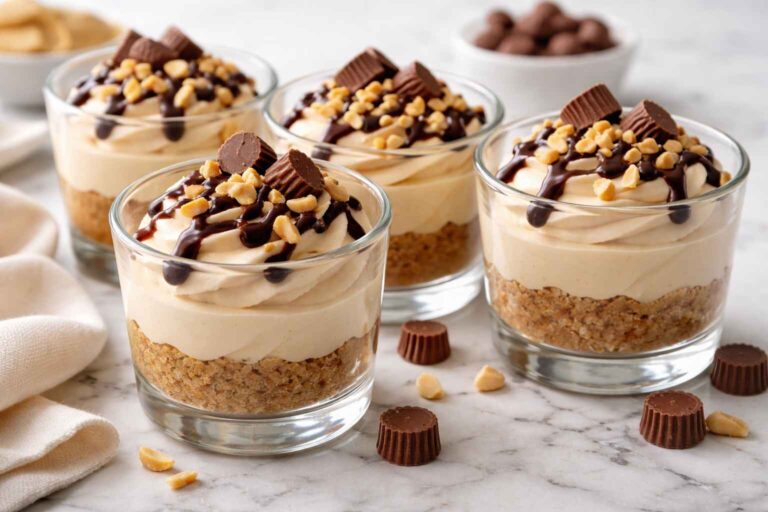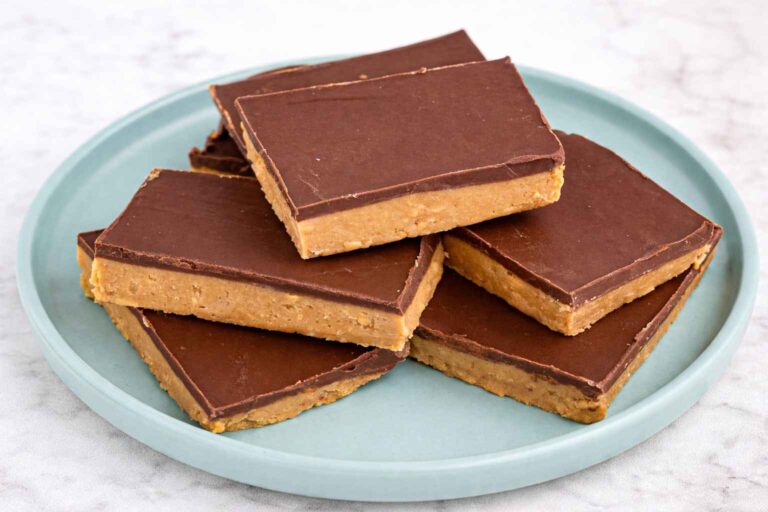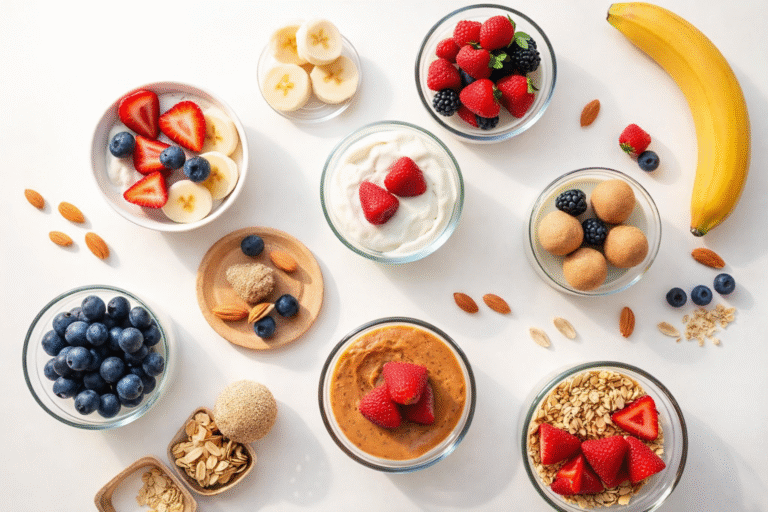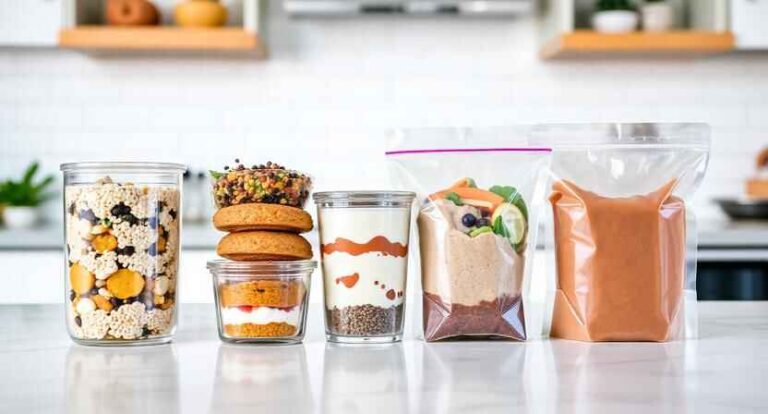Think your classic tuna salad is as good as it gets? Think again. From mayo mistakes to missing crunch, even the most seasoned home cooks overlook simple secrets that transform this humble dish. In this post, we’re unveiling 10 expert-backed tips to take your tuna salad from “meh” to memorable. Ready to unlock the best version ever? Let’s dig in!
Table of Contents
Secret #1: Choose the Right Tuna for Classic Tuna Salad
Not all tuna is created equal, especially when it comes to making a truly great classic tuna salad. 🐟 The type of tuna you pick can make or break the final flavor and texture.
Albacore vs. Chunk Light: Which Tuna Tastes Better?
Here’s the breakdown:
| Type of Tuna | Texture | Flavor | Best For |
|---|---|---|---|
| Albacore | Firm, meaty | Mild and clean | Chunky tuna salads |
| Chunk Light | Softer, flaky | Stronger and briny | More traditional, budget-friendly salads |

If you want a more refined taste, go for solid white albacore packed in water. Want that nostalgic cafeteria-style tuna salad? Chunk light in oil might be your pick. Either way, always drain it well!
“Water-packed tuna gives you better control over your mayo ratio, while oil-packed brings a natural richness,” — Chef Lori Matthews, Food Consultant.
Secret #2: The Best Mayo for a Creamy Tuna Salad
The creamy factor is crucial. Mayo is like the glue that binds everything deliciously together. But what if your mayo is overpowering? Or too thin?
Store-Bought vs. Homemade Mayo: Pros and Cons
Let’s compare them real quick:
- Store-Bought: Consistent, convenient, usually contains stabilizers.
- Homemade: Richer taste, fewer additives, can be customized with lemon or mustard.
Pro tip: Mix mayo with a splash of sour cream or Greek yogurt to lighten it up and add tang!
Also, if you’re looking for the perfect sauce pairing, check out this Pepper Mayo KFC Style that could easily give your tuna salad a zesty twist.
Secret #3: Balancing Texture – The Role of Crunch
Ever had a mushy tuna salad that just felt… flat? That’s where the crunch comes in. It’s like turning up the volume on your salad’s texture!
Top 5 Add-ins That Upgrade Your Classic Tuna Salad
Here are texture-boosting heroes you need to try:
- Celery – classic, crisp, and slightly peppery.
- Red onions – for a sharp bite and color pop.
- Dill pickles – tangy crunch and bold flavor.
- Shredded carrots – mild sweetness and color contrast.
- Chopped apples – a surprising sweet crunch that works like magic.
Want to go gourmet? Try adding toasted sunflower seeds or even crispy chickpeas for a fun upgrade.
If you love vibrant textures, you might also enjoy this Broccoli Cauliflower Salad that brings crunch to another level.
Secret #4: Seasoning Mistakes That Ruin Tuna Salad
Let’s face it—nobody dreams of a bland tuna salad. Yet, underseasoning is one of the biggest sins in tuna salad-making. Don’t stop at salt and pepper.
Must-Have Spices & Herbs for That Signature Flavor
Here’s a spice cheat sheet to bring your salad to life:
- Dill: Classic herb that enhances freshness.
- Celery seed: Adds an old-school deli vibe.
- Smoked paprika: A dash gives a subtle smoky depth.
- Garlic powder: Easy way to boost flavor.
- Lemon zest: For a pop of brightness!
Don’t forget acidity! A splash of pickle juice or vinegar can cut through the richness and balance it all out beautifully.
“Acid is your secret weapon. It’s like turning on the lights in a dark room—suddenly, everything tastes sharper.” — Chef Mia Rios, Culinary Educator.
Secret #5: How to Keep Classic Tuna Salad from Getting Watery
Ever opened the fridge and found a watery mess in your tuna container? It’s gross, right? Let’s fix that.
Common Mistakes in Mixing and Storing Tuna Salad
Here’s why it happens — and how to stop it:
- Wet ingredients: Failing to drain tuna or pickles thoroughly adds excess liquid.
- Overmixing: Breaking down the ingredients too much releases moisture.
- Storing warm: Always refrigerate immediately after making the salad.
To store it right, use an airtight glass container and place a piece of paper towel on top before sealing — it absorbs any extra moisture. Genius, right?
Also, meal prep fans, you’ll love this technique when making large batches. Need more easy prep-friendly ideas? Try this Muffin-Tin Lasagna that’s perfect for lunch boxes.
Secret #6: Low-Calorie Tuna Salad Tips That Don’t Sacrifice Taste
Trying to keep things light without making your tuna salad taste like cardboard? Don’t worry—you don’t have to give up flavor for fewer calories.
Healthy Swaps for a Guilt-Free Tuna Salad Recipe
Here are some waistline-friendly swaps that still bring the flavor punch:
- Greek yogurt: Replace half (or all) of your mayo for a creamy, tangy base.
- Avocado: Rich, buttery, and loaded with good fats—just mash and mix!
- Dijon mustard: Adds a spicy edge without calories.
- Lemon juice: Brightens everything and adds zero calories.
You can even bulk it up with extra veggies like chopped cucumber or bell pepper—filling, colorful, and totally fresh. 🥒
Looking for more nutritious twists? You’ll love this recipe for Cottage Cheese Flatbread as a smart side option.
Secret #7: Classic Tuna Salad Sandwich Perfection
Let’s be honest—the sandwich version of tuna salad is iconic. But there’s a right (and wrong) way to build it so everything stays crisp, creamy, and crave-worthy.
Best Breads and Toasting Tips for Maximum Flavor
Here’s the sandwich-building strategy you didn’t know you needed:
- Bread Choice: Sourdough and rye bring flavor. Brioche adds sweetness. Whole wheat keeps it hearty.
- Toast It: Lightly toasting your bread gives structure and prevents sogginess. Game changer!
- Layer Smart: Put lettuce under the tuna—like a moisture shield that keeps the bread from turning soggy.
Bonus tip: Add a slice of cheddar or tomato for next-level flavor stacking. 🍅

Secret #8: Storage Hacks to Keep Tuna Salad Fresh Longer
Tuna salad can go from fresh to funky if stored the wrong way. So let’s talk about how to keep it fresh, safe, and delicious for days.
How Long Does Tuna Salad Last in the Fridge?
Short answer: 3 to 5 days max.
To store it properly:
- Use airtight containers—glass jars or resealable BPA-free containers are perfect.
- Label the date—don’t play the “sniff and guess” game.
- Keep it cold—place it in the back of the fridge, not the door.
For added freshness, prep ingredients like celery or onion separately and mix them just before serving.
“A little prep work goes a long way. Pre-chopped veggies can be stored dry and added fresh each day to keep textures snappy,” — Sarah Tompkins, Meal Prep Coach.
Secret #9: Real-Life Tuna Salad Makeover Examples
Sometimes the best way to learn is by watching someone else’s glow-up. Let’s peek at a few tuna salad transformations from real home cooks.
Before & After: How 3 Home Cooks Upgraded Their Recipe
| Home Cook | Original Version | Upgraded Twist |
|---|---|---|
| Jenna (TX) | Tuna + Mayo + Celery | Added Dijon, dill, and capers |
| Ricky (NY) | Chunk Light Tuna + White Bread | Switched to sourdough, Greek yogurt, and arugula |
| Ali (CA) | Tuna with pickles | Added avocado and lemon zest for creaminess |
Inspired? Good. You don’t need to be a pro chef to get creative. Tuna salad is one of the most forgiving recipes—make it your own.
If you love smart transformations like these, check out this Chicken and Egg Salad Recipe—a delicious spin-off that combines protein powerhouses.
Secret #10: Expert Tips from Chefs on Classic Tuna Salad
Want to know how the pros take tuna salad from good to “OMG what is this sorcery?” We asked chefs and food writers their top secrets. Let’s spill the tuna.
What the Pros Say About Elevating Tuna Salad
- Chef Andrea Lowell: “Always use a splash of acid—lemon, vinegar, or pickle juice. It makes the flavors pop.”
- Food Blogger Tanya Reyes: “Let your tuna salad rest for 30 minutes in the fridge before serving—it marries the flavors beautifully.”
- Chef Mark Elwood: “Don’t be afraid to spice it up. Try a tiny dab of sriracha or jalapeño for heat!”
And remember—presentation matters. Serve it on a bed of romaine, in lettuce cups, or even spooned onto cucumber rounds for an elegant snack.
Troubleshooting: Why Your Classic Tuna Salad Isn’t Working
Still not quite hitting the mark? Let’s troubleshoot the most common problems.
Fixes for Bland, Dry, or Soggy Tuna Salad
- Bland? Add acid (lemon, mustard), fresh herbs, or a dash of salt.
- Dry? You probably didn’t add enough binder (mayo/yogurt). Start with 2 tbsp per can of tuna and adjust.
- Soggy? You likely didn’t drain the tuna or pickles well. Use paper towels to blot before mixing.
Sometimes, it’s the small things—a better knife cut on your celery or giving it 10 more minutes in the fridge—that make all the difference.
Bonus: Classic Tuna Salad Meal Prep for the Week
Meal prepping tuna salad? It’s not just possible—it’s genius.
How to Batch Prepare Tuna Salad for Busy Days
Here’s how to prep like a pro:
- Make a big base batch of tuna + binder + seasoning (no crunchy veg yet).
- Portion into containers and store in the fridge for up to 4 days.
- Each morning, mix in the “fresh bits” like celery or onion for optimal crunch.
- Serve differently each time—sandwich, lettuce wrap, over rice, or on crackers.

Meal prep hack: Keep an egg slicer handy—hard-boiled eggs are an awesome addition and make your salad more filling.
If you love fast lunch ideas like this, you’ll also appreciate this quick and healthy 4-Ingredient Pasta Salad that’s ideal for make-ahead lunches.
Conclusion
With the right tuna, smart add-ins, and flavor-boosting secrets, your classic tuna salad can become your go-to meal hero. These tips aren’t just for pros—they’re for anyone who wants better lunches without extra effort. Got a favorite trick we didn’t mention? Share it below! And don’t forget to explore more easy lunch wins in our latest recipe collection.
FAQs
What type of tuna is best for classic tuna salad?
Solid white albacore in water is ideal for a clean taste and firm texture. Chunk light tuna works well too if you prefer a stronger, brinier flavor.
How do I make my classic tuna salad creamier?
Use high-quality mayo and try mixing in Greek yogurt or sour cream for extra creaminess without overwhelming the flavor.
What can I add to tuna salad for extra crunch?
Celery, red onion, and pickles are classic choices. Apples, carrots, or sunflower seeds can add a fun twist and boost texture.
Why does my tuna salad get watery after chilling?
It’s likely from undrained tuna or wet veggies. Always drain ingredients well and store in an airtight container with a paper towel on top.
How can I make a healthier version of classic tuna salad?
Swap some mayo for Greek yogurt, add avocado for healthy fats, and load up on fresh veggies to keep it light and satisfying.

10 Secrets to the Best Classic Tuna Salad Ever
- Total Time: 10 minutes
- Yield: Serves 3–4 1x
- Diet: Gluten Free
Description
This classic tuna salad is creamy, crunchy, and perfectly seasoned—everything you want in a nostalgic yet elevated dish. Whether you’re layering it on toast, stuffing it into lettuce wraps, or enjoying it straight from the bowl (no judgment here!), this version brings out the best in every bite. Using a blend of textures and tangy flavors, it’s the only tuna salad recipe you’ll ever need.
Ingredients
2 cans (5 oz each) solid white albacore tuna in water, drained
1/3 cup mayonnaise (or half mayo, half Greek yogurt)
1 tablespoon Dijon mustard
1/4 cup finely chopped celery
2 tablespoons finely chopped red onion
1 tablespoon chopped dill pickles (or relish)
1 teaspoon lemon juice (freshly squeezed)
1/4 teaspoon garlic powder
1/4 teaspoon smoked paprika
Salt and black pepper to taste
Optional: 1 hard-boiled egg, chopped
Optional: Fresh dill or parsley for garnish
Instructions
Drain the tuna well.
Use the lid to press out any excess water or pat the tuna dry with paper towels. This prevents a watery salad.
Break up the tuna.
Place it in a medium mixing bowl and flake it gently with a fork to avoid large clumps.
Add the creamy base.
Stir in the mayonnaise and Dijon mustard. This combo adds richness with a little tangy kick.
Mix in your crunchy bits.
Fold in the celery, red onion, and chopped pickles. These ingredients give your classic tuna salad that satisfying crunch.
Season it right.
Add lemon juice, garlic powder, smoked paprika, and a dash of salt and pepper. Stir well to combine.
Taste and adjust.
Want more tang? Add extra lemon juice. Need more richness? A spoonful more mayo does the trick.
Optional upgrades.
Toss in a chopped hard-boiled egg for extra protein, or sprinkle with fresh dill for a garden-fresh finish.
Chill before serving (if you can wait!).
Let the salad sit in the fridge for 20–30 minutes to let the flavors meld beautifully.
Notes
No mayo fan? Swap it with all Greek yogurt or mashed avocado for a healthier twist.
Make it a meal: Serve on toasted rye, in lettuce cups, or spooned over a baked potato.
For meal prep: Store in an airtight container in the fridge for up to 4 days.
Kid-friendly version: Leave out onions and add a dash of honey mustard for a sweeter flavor.
- Prep Time: 10 minutes
- Cook Time: 0 minutes
- Category: Main Course, Lunch
- Method: No-cook
- Cuisine: American
Nutrition
- Serving Size: 1 cup
- Calories: 210
- Sugar: 1g
- Sodium: 460mg
- Fat: 14g
- Saturated Fat: 2.5g
- Unsaturated Fat: 10g
- Trans Fat: 0g
- Carbohydrates: 3g
- Fiber: 1g
- Protein: 20g
- Cholesterol: 40mg

